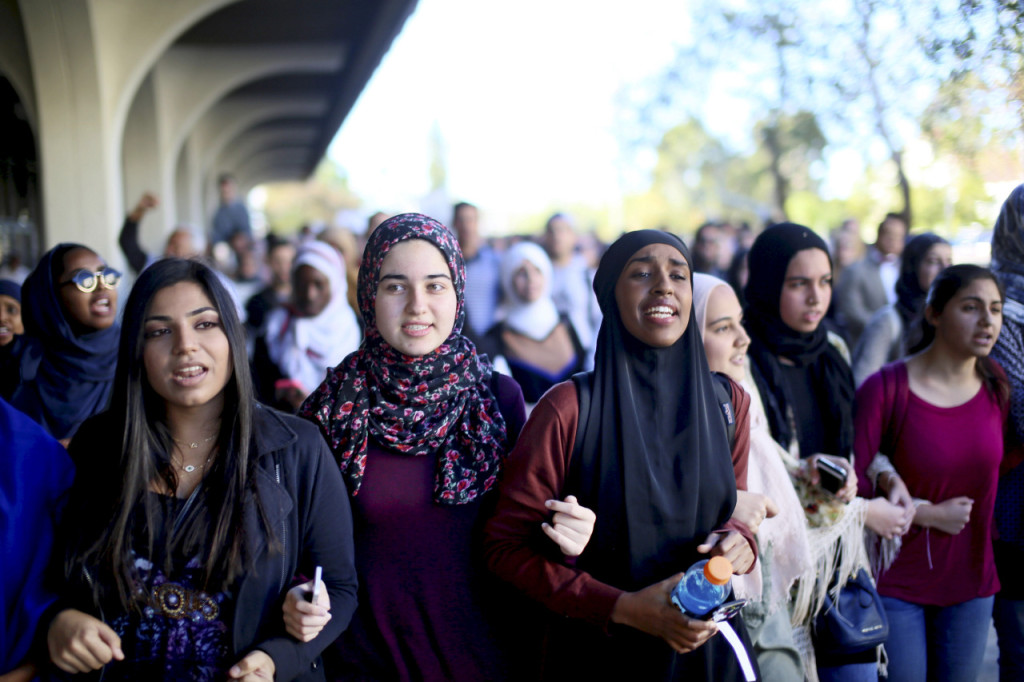In recent days, there have been shows of religious solidarity with Muslims made all around the country — even in a Chicago high school, where female students recently participated in a “Walk a Mile in Her Hijab” initiative.
But two prominent Muslim women, in an Op-Ed for The Washington Post, are asking American women to refrain from such displays of solidarity, arguing that they are misguided. Author and journalist Asra Nomani, who’s been a contributor to Women in the World, and retired journalist Hala Arafa make a forceful argument for why these well-meaning demonstrations are “a painful reminder of the well-financed effort by conservative Muslims to dominate modern Muslim societies.”
They contend that those pushing an Islamist political ideology have perverted the meaning of the hijab, and all but made it the “sixth pillar” of Islam. Nomani and Arafa delve into the denotation of and the colloquial meaning of the word hijab to illustrate their point.
“This modern-day movement, codified by Iran, Saudi Arabia, Taliban Afghanistan, and the Islamic State, has erroneously made the Arabic word hijab synonymous with ‘headscarf,’” Nomani and Arafa write. “This conflation of hijab with the secular word headscarf is misleading. ‘Hijab’ literally means ‘curtain’ in Arabic. It also means ‘hiding,’ ‘obstructing’ and ‘isolating’ someone or something. It is never used in the Koran to mean headscarf.
In colloquial Arabic, the word for ‘headscarf’ is tarha. In classical Arabic, ‘head’ is al-ra’as and cover is gheta’a. No matter what formula you use, ‘hijab’ never means headscarf. The media must stop spreading this misleading interpretation,” Nomani and Arafa cautioned.
The pair goes on to say that they see the hijab as an interpretation by Islam which depicts women as a sexual distraction to men, who are weak — a concept that they contend derives from a misinterpretation of the Koran. The perspective has proven divisive — many on social media expressed gratitude for the opinion, others panned it.
In an open letter on the website AltMuslimah, Keziah Ridgeway, and American Muslim woman wrote a thoughtful open letter in response to Nomani and Arafa, and one of its key points was that many African slaves in America were forced to abandon their religion when they were brought to the United States, and then forced to adopt another religion.



























